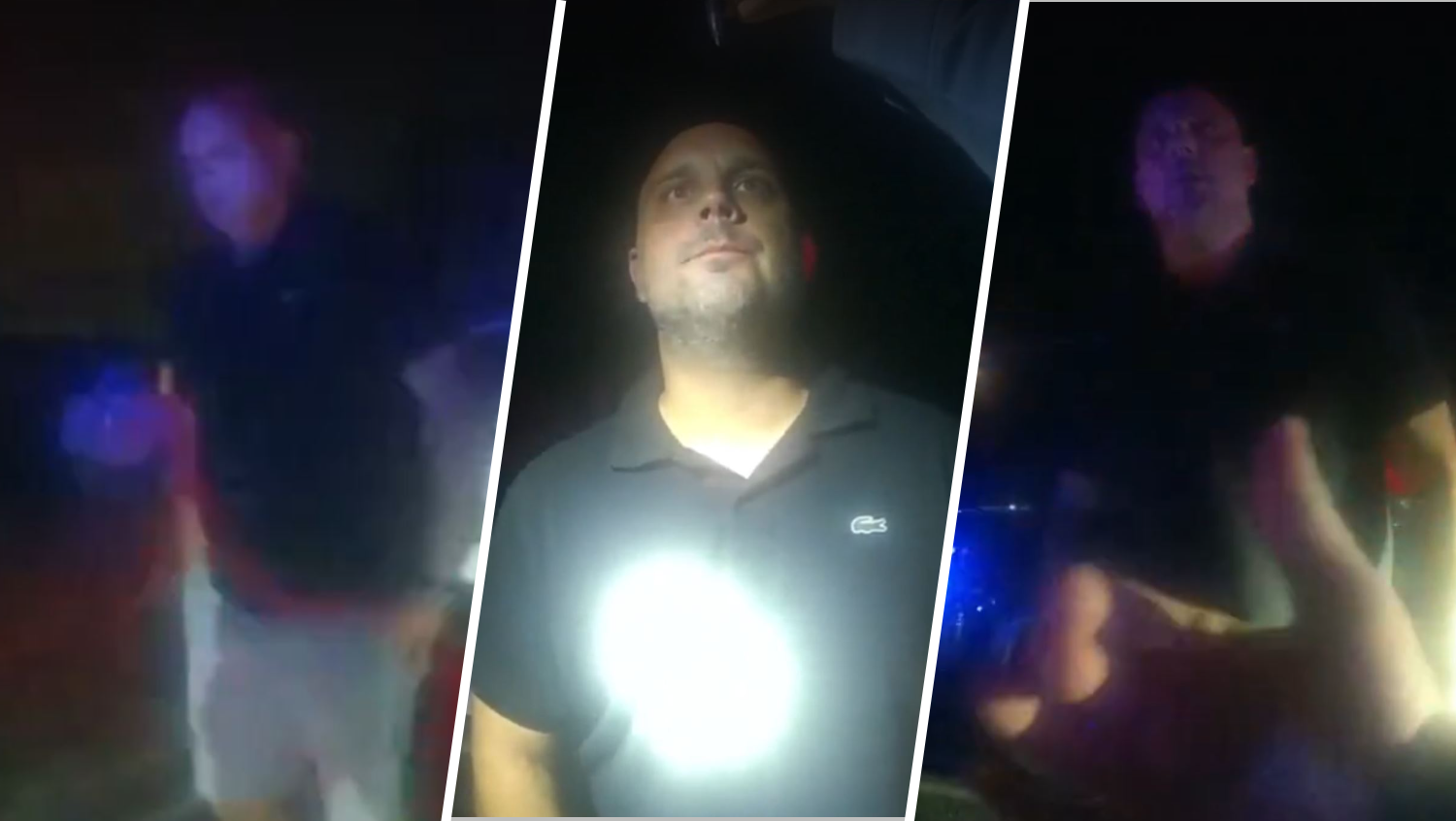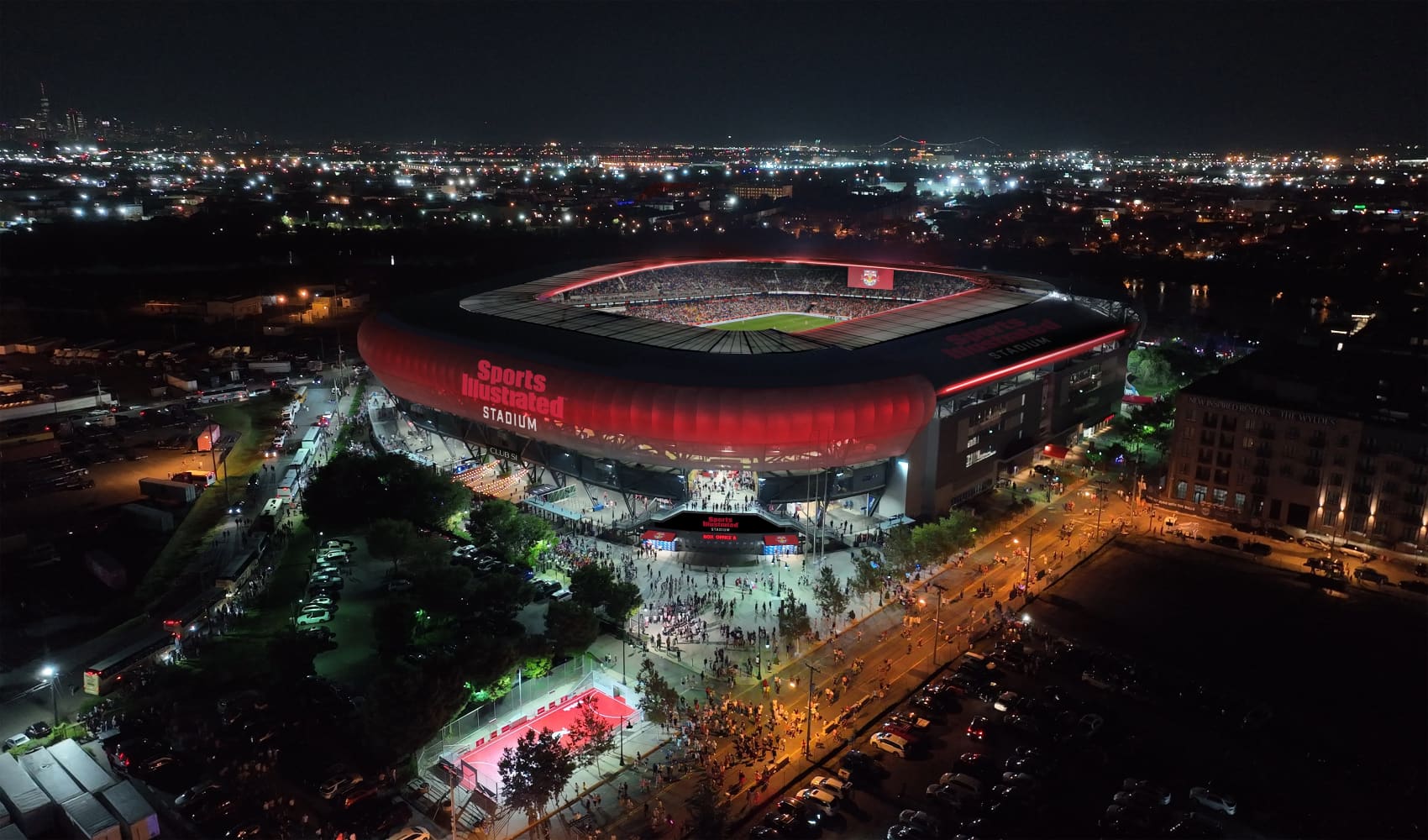A pro-Palestinian protester wearing a keffiyeh scarf has been charged with violating a Long Island county’s new law banning face masks in public, reviving fears from opponents that the statute is being used to diminish free speech rights.
Police said the 26-year-old North Bellmore resident was arrested Sunday afternoon during a protest in front of Young Israel of Lawrence-Cedarhurst, an orthodox synagogue near the New York City borough of Queens.
Nassau County Police Department spokesperson Scott Skrynecki said Thursday that officers questioned the man because he had been concealing his face with a keffiyeh, which has become a symbol of support for Palestinian people.
Police on the scene asked him if he was wearing the garment for medical or religious purposes, which are the two major exceptions to the new ban, according to Skrynecki. When the man confirmed he was wearing it in solidarity with Palestinians and not for either of those reasons, he was placed under arrest, Skrynecki said. He was eventually released with a notice to appear in court on Oct. 2.
Videos showing some of the arrest have been shared on social media. They show the man wearing the keffiyeh around his neck as he’s led away by officers in handcuffs and continues to lead others in pro-Palestinian chants.
The man didn’t respond to calls and social media messages seeking comment Thursday.
Get Tri-state area news delivered to your inbox.> Sign up for NBC New York's News Headlines newsletter.
Local
Rachel Hu, a spokesperson for ANSWER Coalition, which organized a rally this week against the arrest, said the man is currently seeking legal counsel and won’t be commenting on the case until then.
She added that organizers believe the man was targeted as one of the leaders of Pro-Palestinian protest movements on Long Island.
“We feel that this arrest (and this ban overall) was aimed at intimidating known activists to discourage us from using our first amendment right to protest,” Hu wrote in an email.
The New York chapter of the Council on American-Islamic Relations denounced the arrest as proof that the local law was being used as a “silencing tactic” against Palestinian supporters.
“Barring other criminal misconduct, wearing a keffiyeh or a mask does not make you suspicious,” Lamya Agarwala, supervising attorney for the organization, said in a statement. “Using this policy to arrest protesters is an affront to our fundamental rights as Americans.”
Skrynecki responded that police officers, as with all laws, “enforce the mask transparency act equally and fairly regardless of the demographics of the defendant.”
A spokesperson for Nassau County Executive Bruce Blakeman didn't respond to the critiques but confirmed the Republican, who is Nassau's first Jewish county executive, was at the synagogue at the time of the protest.
Sunday's arrest is among the first under the Mask Transparency Act approved by Nassau County’s Republican-controlled legislature and signed into law by Blakeman last month.
The first instance was an 18-year-old arrested as he walked around the Levittown and Hicksville area wearing a black ski mask late last month. Police said at the time that the teen displayed other suspicious behavior, including attempting to conceal something in his waistband that turned out to be a large hunting knife.
Another arrest involved a 27-year-old Manhattan man who police say was attempting to break into a residence in Jericho while wearing a black ski mask.
Both cases are pending, according to the Nassau County District Attorney’s office.
The law, which came in response to “antisemitic incidents” since the Oct. 7 start of the Israel-Hamas war, makes it a misdemeanor punishable by up to a year in jail and a $1,000 fine for anyone in Nassau to wear a face covering to hide their identity in public.
But it exempts people who wear masks “for health, safety, religious or cultural purposes, or for the peaceful celebration of a holiday or similar religious or cultural event for which masks or facial coverings are customarily worn.”
Disability Rights of New York, a group that advocates for people with disabilities, has filed a legal challenge arguing that the mask law is unconstitutional and discriminates against people with disabilities.



